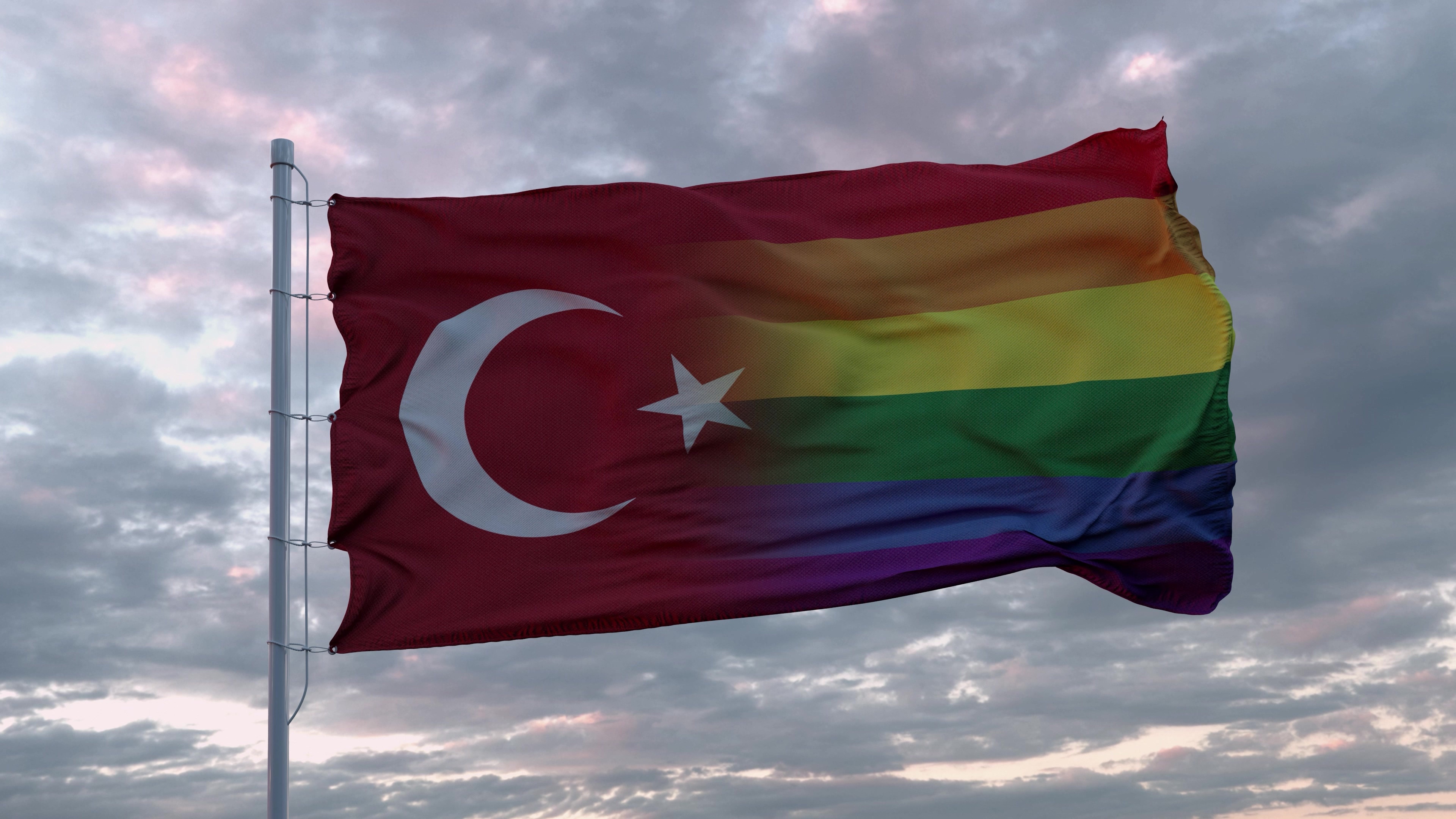
Image Credit
Adobe Stock
The legal backdrop: no criminal ban, but no protection either
Turkey does not outlaw same-sex relations, and gender diversity is not criminalized under the country’s penal code. What is missing, however, is any nationwide legislation that shields LGBTQ people from discrimination in employment, housing, education or health care. Marriage equality and civil partnerships are also absent from Turkish law, leaving queer couples without inheritance, immigration or hospital-visitation rights. Human Rights Watch has warned that the country is in a “deepening human rights crisis,” a description the advocacy organization repeated in its most recent annual assessment. Although the comment addressed wider civil-liberties issues, activists say LGBTQ communities feel the squeeze most acutely when it comes to freedom of expression and assembly.Political headwinds: pride bans and public rhetoric
Pride celebrations once flourished on Istanbul’s Istiklal Avenue, but march permits were abruptly revoked in 2015 and have been denied every summer since. Police used tear gas and rubber bullets to disperse marchers after the first ban, and eyewitness videos from subsequent years show similar tactics being deployed. Regional bans quickly followed. In 2017, Ankara’s governorship prohibited all LGBTQ-related cultural events, citing “public security” concerns. The decree chilled queer film festivals, academic panels and even drag-brunch gatherings in the capital. Government rhetoric has only intensified. Then-Interior Minister Süleyman Soylu labeled student demonstrators “LGBTQ perverts” in 2021 after they displayed rainbow flags during campus protests. Around the same time, President Recep Tayyip Erdoğan told supporters he would never be “pro-LGBT” because “family is sacred.” While neither statement altered the legal code, activists say such language emboldens extremist groups and influences local authorities.Everyday attitudes: city buzz versus rural conservatism
In liberal pockets of Istanbul’s Beyoğlu neighborhood or along İzmir’s seafront promenade, you will find queer-friendly cafés, drag shows and rainbow-flag stickers in shop windows. Outside the urban centers, however, conservative social norms often prevail. Public displays of affection—straight or gay—can draw disapproving looks. Adventure operator Intrepid Travel cautions that “gay couples should be wary of displays of affection except in private,” advice that applies doubly in small towns or conservative districts of big cities. A 2021 study by the Ankara-based group KAOS GL reported that 90 percent of LGBTQ respondents experienced online harassment or threats, underscoring how intolerance extends beyond physical spaces.Incidents involving foreign travelers
While most visits are trouble-free, recent cases illustrate how foreign nationals can become entangled in local tensions:- Twenty-day detention, 2022: A Portuguese visitor said he spent 20 days in an Istanbul jail after police stopped him near an unsanctioned pride demonstration and allegedly accused him of “looking gay.”
- Hotel rejection, September 2021: A British traveler reported that a Bodrum hotel canceled his reservation on learning two men would share a room.
- GBL conviction, 2018: French tourist Fabien Azoulay was sentenced to 16 years for purchasing a chemical substance that had been outlawed months earlier. Azoulay later alleged he was scalded with boiling water by inmates who targeted him for being gay. He secured a transfer to France and release in 2021.
What official travel advisories say
Britain’s Foreign, Commonwealth and Development Office (FCDO) currently advises against travel to several parts of Turkey for all travelers, citing security concerns that are unrelated to LGBTQ status. Ignoring that guidance can invalidate travel insurance policies and limit consular assistance, a critical consideration if you intend to visit border regions near Syria or areas under enhanced security operations. The U.S. State Department places Turkey at Level 2 (“Exercise increased caution”), with Level 4 (“Do not travel”) warnings applied to the Syrian frontier provinces. Both agencies note that peaceful demonstrations—LGBTQ or otherwise—can be dispersed without warning.Health, surgery and medical tourism
Turkey markets itself as a hub for affordable hair transplants, dental implants and bariatric surgery. Clinics with glossy Instagram feeds often occupy the same cities where pride parades are prohibited. Before committing, ask clinics whether they have experience with LGBTQ clientele, and verify whether overnight companions or chosen-family caretakers can stay in recovery rooms.Tips for Travelers: Staying Safe and Respectful
- Choose accommodations carefully: International chains in larger cities usually follow nondiscrimination guidelines, but boutique hotels may not. Email ahead to confirm double-bed arrangements if traveling as a same-sex couple.
- Carry proper ID: Turkish police can demand identification during spot checks, especially near protests or nightlife districts. Keep a passport copy on your person and know the phone number of your embassy.
- Limit public affection: Even in Istanbul or İzmir, kissing on the street can invite unwanted attention. Discretion minimizes risk.
- Avoid protests: Spontaneous gatherings—even peaceful ones—can be deemed illegal. Foreigners have fewer legal avenues to contest detention.
- Use reputable apps safely: Dating applications are widespread, but catfishing and blackmail cases occur. Meet in public places first.
- Review insurance fine print: Policies can become void if you travel against official advisories or engage in activities deemed illegal.
Frequently Asked Questions
- Is homosexuality illegal in Turkey?
- No. Same-sex activity has been legal since the formation of the modern republic, and previously under Ottoman law. However, no national statute bans anti-LGBTQ discrimination.
- Can I attend Pride in Istanbul?
- Permits for Istanbul Pride have been denied every year since 2015. Attempting to march or gather could result in arrest.
- Which regions are safest?
- Istanbul’s Şişli and Beyoğlu boroughs, parts of İzmir and some Aegean resort towns host openly queer venues. Conservative responses increase in Anatolia and the Black Sea provinces.
- Will customs inspect my medications or toys?
- Prescription medication should be accompanied by a doctor’s letter. Sex toys are legal but can draw scrutiny from airport officials; pack discreetly.
- Is gender-affirming care available?
- Hormone therapy and gender-affirming surgeries are performed in Turkey, but navigating providers may require local advocacy contacts.
Bottom line for LGBTQ visitors
Turkey offers world-class ruins, Mediterranean sunsets and Ottoman hospitality—but also an environment where queer visibility can provoke backlash. By researching neighborhoods, booking LGBTQ-friendly hotels and respecting local customs, travelers can still enjoy the country’s riches while minimizing risk. Flexibility and vigilance remain your strongest travel companions.Destination


